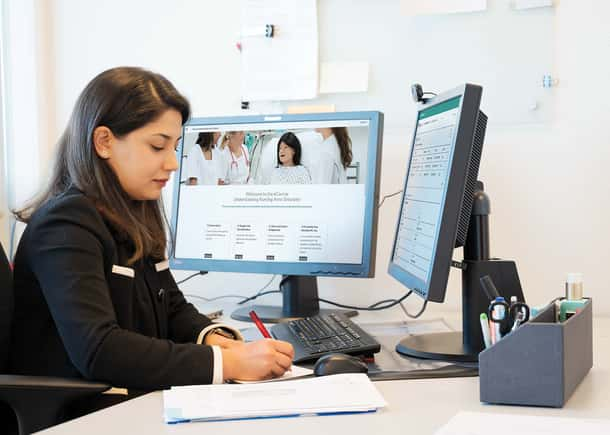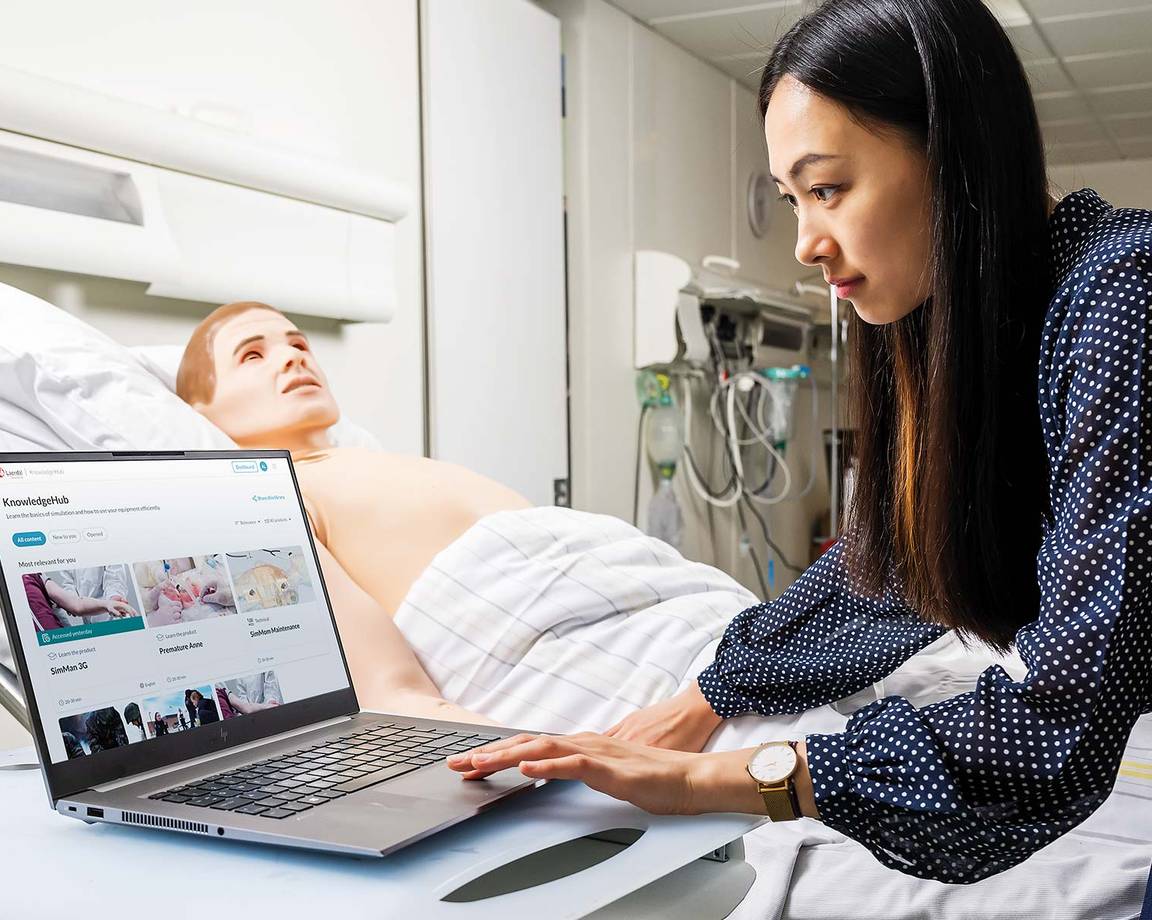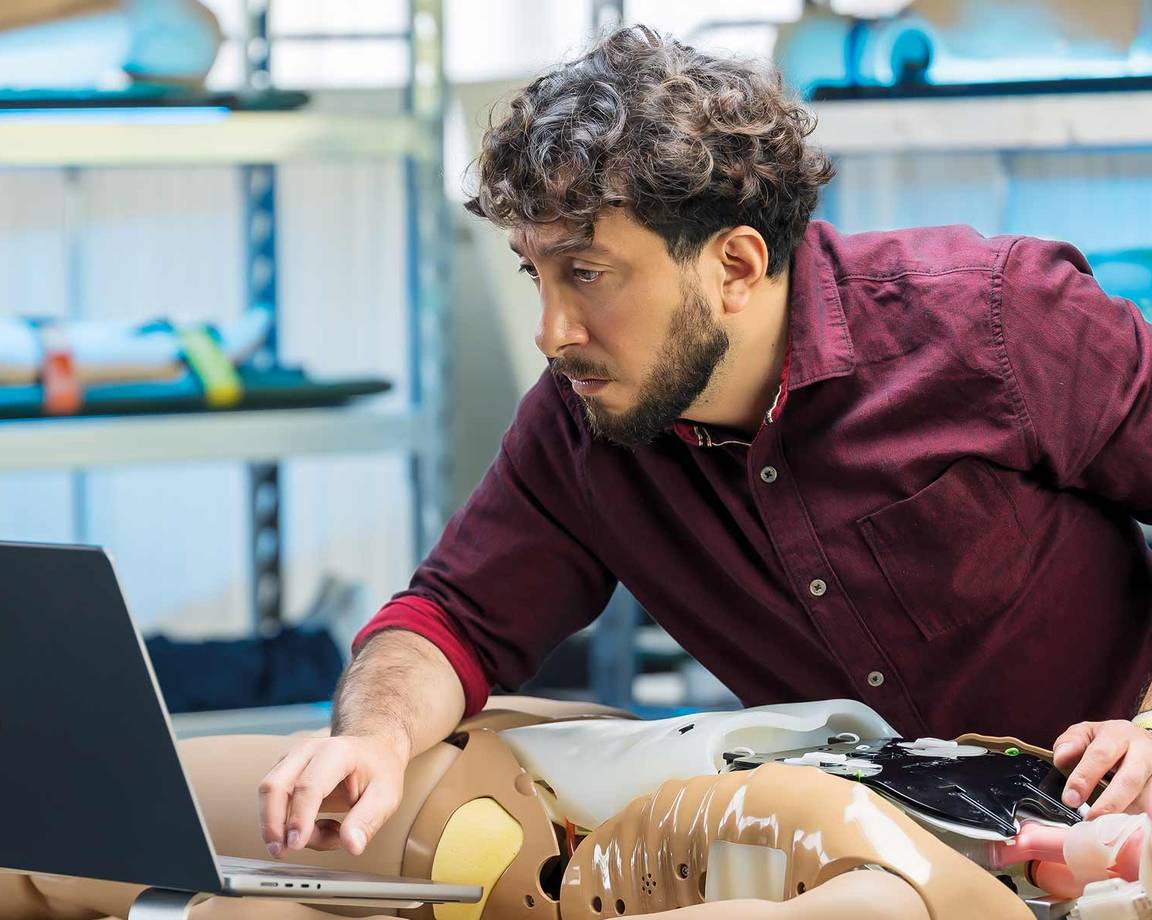5 Reasons to Embrace Self-Service Solutions


To be successful, clinical simulation programs must have an eye toward operational excellence. There’s no way around that. Clinical simulation programs play a pivotal role in healthcare education. Their institutions rely on them to be ready to deliver training on time and without interruption.
One important factor in achieving operational excellence is embracing self-service solutions instead of relying on costly visits. In today's increasingly complex and cost-conscious healthcare landscape, adopting self-service resources can help you optimize your simulation center operations. Laerdal Medical continues to introduce new self-service options. Here are 5 reasons why you should consider them.

The foremost advantage of self-service support is its potential to generate significant cost savings. Paying for onsite visits can be a substantial ongoing expense. According to a report published by Deloitte, labor costs make up a significant portion of total service costs in many industries including healthcare. Reducing these costs through self-service initiatives can result in substantial savings. By allowing your staff to handle common maintenance tasks or to build competency in utilizing a simulator themselves, you can cut down on the need for external support and associated service fees, thereby reducing operational expenses.1
Self-service support empowers staff to address technical problems or knowledge gaps promptly, without waiting for external representatives to arrive on-site. This not only minimizes downtime but also leads to faster issue resolution. In a study by the Aberdeen Group, it was found that organizations that prioritize self-service and empower their staff to resolve issues independently achieve an average 71% first-call resolution rate—significantly outperforming their peers who rely primarily on technician visits.2
This goes to the famed Steven Covey principle, "Teach a person to fish and you have fed them for a lifetime." Self-service training fosters a sense of empowerment and autonomy among your staff. Empowered staff tend to be more engaged and satisfied in their roles. According to research published in the Harvard Business Review, staff empowerment is strongly linked to job satisfaction, as it allows individuals to take ownership of their tasks and responsibilities. Moreover, empowered employees are more likely to demonstrate higher levels of problem-solving skills and proactivity, which can positively impact the overall productivity of your organization.3
A study conducted by Coleman Parkes showed that 91% of survey respondents would use an online self-service knowledge base if available.
The same study showed that only 40% of respondents still felt the need to contact support after they had looked for answers to their questions through a self-service portal. That’s 60% that felt empowered through self-service to solve their problems and move on to the next task.

As your simulation program grows, the demand for support may increase exponentially. We have seen this happen routinely. Relying solely on external representatives for every issue can lead to bottlenecks and delays in your performance. Self-service solutions offer you scalability and flexibility. You can handle routine tasks and troubleshoot minor issues while allowing our technicians and educators to focus on more complex or specialized tasks. This flexible approach ensures that you benefit from efficient resource allocation and enables your program to adapt to evolving needs. Ask any of our service team. They are a great reference on this point!
It is a fact that self-service support encourages knowledge transfer and continuous learning within your organization. As your staff acquires new skills, they will become more proficient in the technology and systems they use daily. This knowledge can be shared among their colleagues, fostering a culture of collaboration and knowledge exchange. Additionally, ongoing training and support—which we can provide—ensures that your workforce will remain adaptable and proficient in using the latest tools and systems, which is vital in today's rapidly evolving technological landscape.4
If operational excellence is important to you, you may have considered seeking accreditation through the Society for Simulation in Healthcare (SSIH) or endorsement through the International Nursing Association for Clinical Simulation and Learning (INACSL). Or perhaps your institution has already achieved this level of status. Either way, incorporating a self-service mindset can help—for all the above reasons and more.
SSIH maintains seven core criteria that are the fundamental structural and operational standards that all SSIH-accredited programs must meet. In the context of how you organize your service strategy, three standards stand out. They are Program Management, Resource Management, and Continuous Improvement. A self-service component to your efforts will not be enough to earn you what you need for accreditation. But the process of creating a service strategy—of which self-service can be a part—will lend great credibility to what your program can deliver. It demonstrates intent, structure, and ownership of a critical step in achieving operational excellence.
Similarly, INACSL maintains its own list that combined form their Healthcare Simulation Standards of Best Practice™. Operations is one of them. To attain INACSL endorsement, INACSL requires that “All simulation-based education programs require systems and infrastructure to support and maintain operations.” If you read the standards closely and you weigh them against what you can achieve through a well-orchestrated and structured service strategy as we have described, you will likely find that you will have a good case to make!
We hope you strive for SSIH accreditation and INACSL endorsement. Let us know how we can help.
Our ability to offer you self-service solutions is a cornerstone of our commitment to your success. While self-service may be something new for your organization, embracing it can prove to be a tremendous strategic opportunity offering you numerous measurable benefits. Cost efficiency, faster issue resolution, employee engagement, scalability, and knowledge transfer—these are only some of them. But they are factors that help define operational excellence.
Let us help you. Laerdal Medical has worked with thousands of clinical simulation programs globally to help them achieve operational excellence through a purposeful service program. We can help you do the same, in part by helping you understand how self-service solutions can sustain your efforts. Our mission is helping save lives, and helping you achieve your operational goals in a competitive environment is a part of that.
Self-Service Maintenance
With Laerdal’s Self-Service Maintenance solution organizations can arm their faculty with the resources needed to perform basic upkeep when and where it’s needed.
Self-Directed Learning Courses
By providing anytime, anywhere access to product training aids, Laerdal’s Self-Directed Learning eCourses allows team members to access learning materials and resources, set their own goals, and refresh their skills as needed.